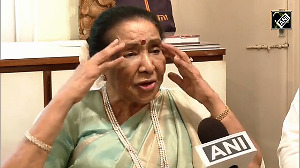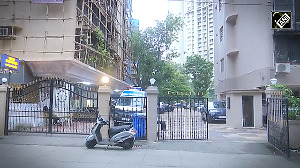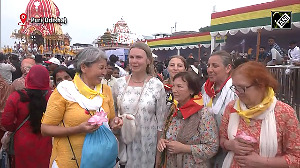When Indo-Tibetan Border Police Director General Ranjit Sinha was chosen as the head of the Central Bureau of Investigation, among the first things his colleagues did for their boss -- known to be a connoisseur of food -- was to organise a small party with delicacies from his home state, Bihar.
But, for Sinha, the appointment might not have come as a big surprise. Since he joined the Indian Police Services in 1974, his career has gone from one prestigious posting to another. The Bihar cadre officer has already been the chief of two organisations, the Railway Protection Force and ITBP. He is also the second chief of ITBP after Joginder Singh, who handled the Bofors case, to have been appointed as CBI director.
The 59-year-old IPS officer was due to retire in March 2013, but this assignment is expected to keep him busy for two more years. This, however, is not his first stint in CBI. Sinha was earlier the deputy inspector general of CBI, posted in Ranchi, Jharkhand, when he had investigated the fodder scam against the then-Bihar chief minister Lalu Prasad. He has also served as joint director in CBI's anti-corruption unit in Delhi.
Sinha's appointment as director has not gone without opposition. Bharatiya Janata Party leaders have argued the prime minister should have waited for the passage of the Lokpal and Lokayukta Bill 2011, which suggests such appointments be done through a collegium comprising the prime minister, the leader of Opposition in the Lok Sabha and the Chief Justice of India.
It's rare for the Union government to name a new CBI chief well ahead of the retirement of the incumbent. The announcements for the present director, A P Singh, and his predecessor, Ashwani Kumar, were made just a day before the retirement of the incumbent directors, while former
iv_arti_inline_advt">









